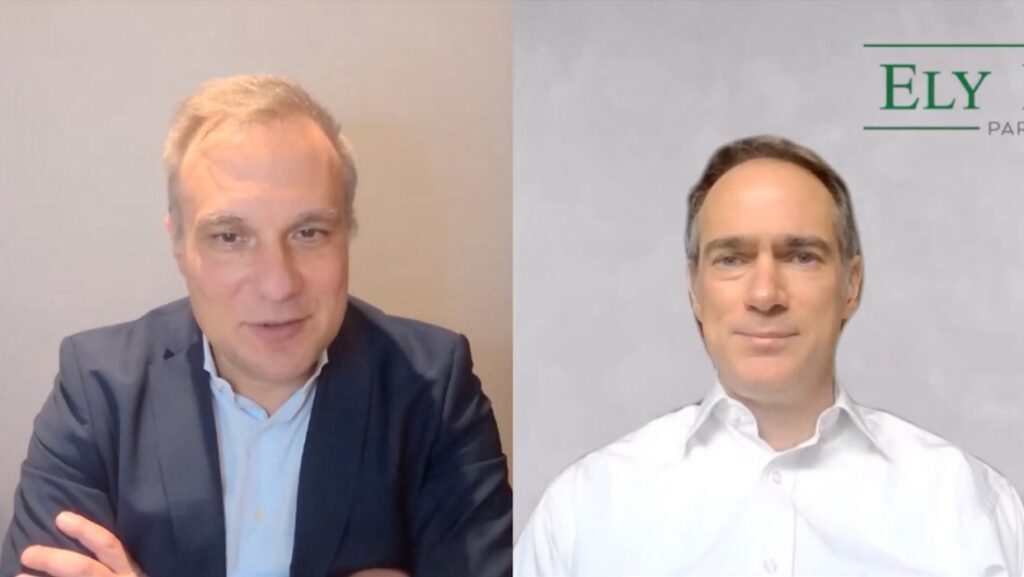Search funds, deal-by-deal vehicles gain momentum in DACH
Search funds and deal-by-deal investment vehicles are gaining momentum in Germany, Austria and Switzerland (DACH), dealmakers said.
The demand from the sellside for new models and approaches is being driven by the need for innovative succession solutions amid significant demographic changes.
Meanwhile, on the buyside, family offices, high-net-worth individuals, and entrepreneurs are increasingly seeking greater control over their investments.
“For some family-owned businesses, particularly in the DACH region, a searcher can be like the daughter or son that takes over the business and preserves the legacy,” Ibrahim Ibdal Rahim, managing partner of Moonbase Capital, said.
“Searchers with an engineering background or strong operational expertise often have more success convincing founders in the DACH region to sell their companies than those coming from purely financial or consulting backgrounds,” the managing partner added.
Moonbase Capital, a search-fund investor platform founded in Spain in 2021, has so far invested in nine search-fund deals in Europe, Rahim said. Three were executed in Germany, with one in Austria, he added.
Both search funds and deal-by-deal investment vehicles work with a small selection of investors – often family offices or high-net-worth individuals from entrepreneurial backgrounds – to invest in one specific target.
These models stand in contrast to the standard private equity (PE) model, where limited partners (LPs) provide upfront capital that will be invested across a range of deals.
In the case of search funds, an individual entrepreneur, or occasionally a duo, will seek, buy, and then run a business with the backing of investors. Search-fund platforms provide a support ecosystem.
Meanwhile, deal-by-deal specialists seek to identify a pool of co-investors for specific opportunities.
Investors in search funds and deal-by-deal vehicles often take an active role in helping select opportunities. They will often support the company after a deal by leveraging networks or expertise, dealmakers said.
“We are seeing strong and growing interest from family offices and entrepreneurial families or individuals, who are looking for more than just capital deployment,” Benedikt von Hatzfeldt, founding partner at Tembo Search Partners, said.
Investors and entrepreneurs “want direct access to high-quality mid-sized businesses, proximity to the deal, and the ability to contribute their expertise and networks,” von Hatzfeldt said. Investors can gain board roles, advisory support, and a long-term relationship with the incoming CEO, he added.
Tembo Search Partners has its headquarters in Hamburg and launched its search-fund platform in 2024. It aims to complete four deals a year. It joins players such as Novastone Capital of Switzerland, Konkordia and Tilia Nachfolgekapital, which are also active in the segment.
Meanwhile, deal-by-deal investors in the region include IBEX, which launched in 2024 in Munich, and Valerna, which launched earlier this year in London and Frankfurt. Rigeto of Munich was founded in 2013 has has stuck to its deal-by-deal structure since.
Boomers retire
There are almost 16 million members of Germany’s Baby Boom generation, who were born between 1946 and 1964 in the largest country within the DACH region. They are currently aged between their early 60s and late 70s.
Many business owners from this generation are thinking about retirement and succession planning.
At the same time, younger entrepreneurs are increasingly seeking to exit their businesses several years ahead of retirement to pursue other projects.
As a result of both trends, there is increasing demand for succession solutions in Germany and elsewhere in DACH, particularly when deals can be customised, dealmakers said.
Both search funds and deal-by-deal vehicles are typically focused on founder-owned primary buyouts, particularly those with succession issues. The boundaries between the two categories and conventional mid-cap PEs can be blurry in practice, dealmakers said.
PE firms sometimes use co-investors to fund deals, and deal-by-deal investors like IBEX can also line up a new team to run businesses, dealmakers said. This also means that the boundary between new categories and older models, including evergreen investors, can become blurry.
Search targets typically have EBITDA up to EUR 5m
Search funds are also called Entrepreneurship Through Acquisition (ETA) vehicles. The model typically involves an experienced manager or an MBA candidate buying a company with the backing of other entrepreneurs.
The model originated in the US in the 1980s. In DACH, target companies typically generate an annual EBITDA of between EUR 2m and EUR 5m, with purchase prices in the low to mid-teens of millions, but there are exceptions with higher valuations, as well, dealmakers said.
According to IESE’s 2024 report on search funds, Germany has seen the launch of 20 Search Funds since 2009, with a significant rise in the last few years. The country still lags behind other European countries like Spain, the UK and France.
Search-fund deals often need more advisory support than other mid-cap PE transactions, dealmakers said.
“Searchers are often relatively inexperienced when it comes to approaching potential targets and investors, which means there is a higher degree of transaction risk unless they work with experienced legal and financial advisors to guide them through the process,” Thorsten Rohde, partner at ROHDE BAIER, said.
Advisors often need to take a more hands-on approach during the process to facilitate conversations between the target and the search fund, Rohde also said. Unlike in the US, where the model is more established, there are no standard blueprints for the deal-sourcing process and deal structure, he said.
Due to the relative immaturity of the search fund ecosystem in DACH, it can also be challenging to secure financing for deals or for the search phase, which can take up to two years.
“Investments in search funds require a certain degree of a ‘pioneering instinct’ among financing partners,” Simon Seibold, founder & CEO of ProxDeal, a software tool for searchers and investors, said. He is also the founder and managing director at tech-driven M&A advisory firm Sigubald.
“Search funds are by nature an investment in the searcher as much as in the target company,“ Seibold also said. While they often have less financial clout than PEs, they can offer more flexibility, he said.
Another advantage of search funds versus the standard PE model is that the founder can retire immediately, rather than continuing to work for the new owner while navigating complicated earn-out clauses, Rahim said.
With many searchers emerging out of the venture capital and start-up scene, cultural differences between bidders and the founders of manufacturing or industrial companies can be an issue, Seibold said
On the other hand, searchers with operational or M&A experience and with backing of established family offices or entrepreneurs can be a good fit for companies looking for succession solutions, Johannes Baier, partner at ROHDE BAIER, said.
The search-fund model has shown attractive returns in other markets. The average internal rate of return (IRR) across search funds is around 35%, according to a Stanford Search study.
Exits in the DACH region are still thin on the ground, but Rahim expects similar returns to those in the Stanford Search study. The number of exits will increase in the years ahead as the model gains traction, he added.









